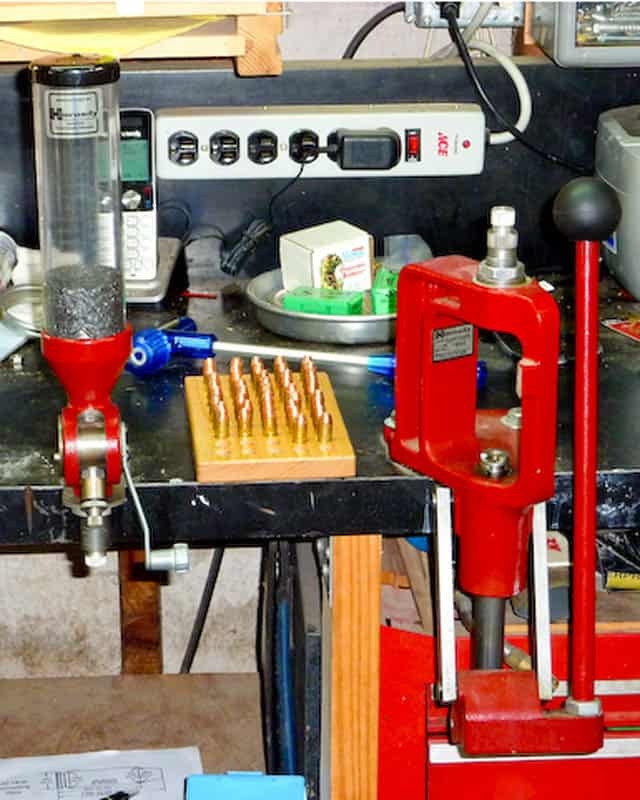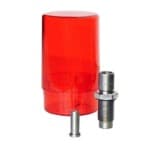
Single-stage, turret, and progressive Reloading Presses: How do I know what to buy?
So, you're thinking about getting into reloading but aren't sure what kind of reloading press to buy? Let's delve into the differences between single-stage, turret, and progressive reloading presses, and we'll discuss some specific models from popular brands including Lee, Hornady, Dillon, RCBS, and Lyman.
Single-Stage Press
Single-stage reloading presses, being the simplest and often the most affordable type, are often the first choice for newcomers to reloading. They're named "single-stage" because they perform one function per pull of the lever. You set up a die, perform that operation on each case, then replace the die and repeat for the next operation. This allows for precision, as you can focus on one operation at a time and adjust as needed. A great example of a single-stage press is the RCBS Rock Chucker Supreme. Known for its robust design, precision, and versatility, it's a popular choice among precision shooters. On the other hand, the Lee Breech Lock Challenger is another single-stage press known for its affordability and durability, making it a solid option for beginners.
While most modern reloading presses and dies can be interchanged between various brands (they all use a 7/8"-14 standard size), Lee and Hornady have come up with schemes where they have a proprietary mounting holes that accepts a special ring that holds a standard die. The rings are designed to release quickly from their mount. These allow quick changes of dies without unscrewing them from the ring. Die height is preserved and dies can be changed quickly. These make it convenient to quick change, but only between reloading presses from the same manufacturer...while the dies are still interchangeable, the quick-change rings are not.
Turret Press
Turret reloading presses hold multiple dies at once and can perform multiple operations in succession, without needing to manually change the die. The 'turret' can rotate to move between dies, making the process much faster than a single-stage press. When using a single-stage press, you typically work on building a batch of ammunition by performing an operation on multiple pieces, then setting up the dies for the next stage, and performing the next operation on multiple pieces, and so on until the ammunition is finished. With turret reloading presses, you would typically run a single piece of ammunition through all the building stages by rotating each die to perform its duty on it before moving on to the next piece of ammunition. One of the key advantages is to be able to see a fully completed piece of ammo before producing many more.
The Lyman All American 8 Turret Press is an example of a sturdy, reliable turret press that offers the capacity to hold up to eight dies, speeding up the reloading process considerably. The Redding T-7 Turret Press is another option known for its high precision and excellent build quality, although it's a bit pricier. With Turret presses, often the turrets are changeable, allowing sets of dies to be mounted and instead of removing the dies, the turrets can be changed out. This allows for quick changes between different ammunition types and the convenience of preserving the setup of various sets of dies.
Progressive Press
A progressive reloading press, the fastest to use, and slowest to set up of the three types, holds multiple dies and performs multiple operations with each lever pull. The cases are held in a shellplate and each pull advances all the cases one station. For instance, Dillon Precision's XL750 is a high-speed, reliable progressive press that offers consistent performance and is a favorite among high-volume shooters. The Hornady Lock-N-Load Auto-Progressive Reloading Press is another well-regarded option, with its easy-to-use system that allows for significant output and precision. However, the complexity of these presses can make them a bit daunting for beginners.
Choosing between these reloading presses largely depends on your specific needs. If you are a beginner or are looking for precision over volume, a single-stage press such as the RCBS Rock Chucker Supreme or the Lee Breech Lock Challenger may be more suitable. If you need a balance of precision and volume, a turret press like the Lyman All American 8 or Redding T-7 would be ideal. For high-volume reloading, a progressive press like the Dillon XL750 or the Hornady Lock-N-Load Auto-Progressive would be a better choice. Lee has recently come out with a low cost, but very capable progressive press called the Pro 6000. It's also worth noting that each press, and each brand, has its own set of unique features that may sway your decision, so it's worth researching each one to find the best fit for your needs.
Shortly we'll be featuring additional articles on this site regarding this topic.
If you'd like to read forums featuring reloading topics such as reloading presses click here.
A full selection of reloading presses to buy can be found here and here.
If you know of any forums or sites that should be referenced on this listing, please let us know here.




